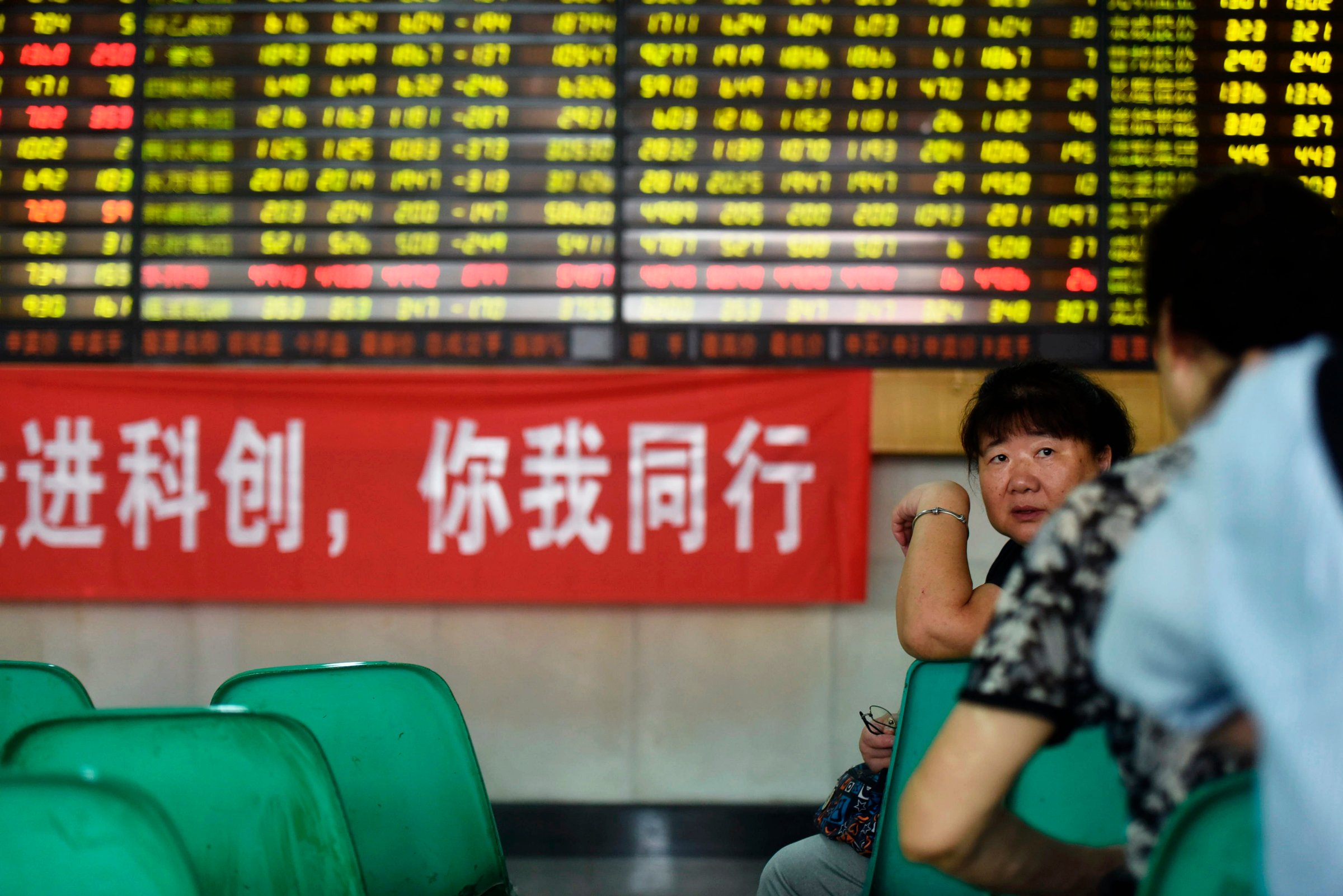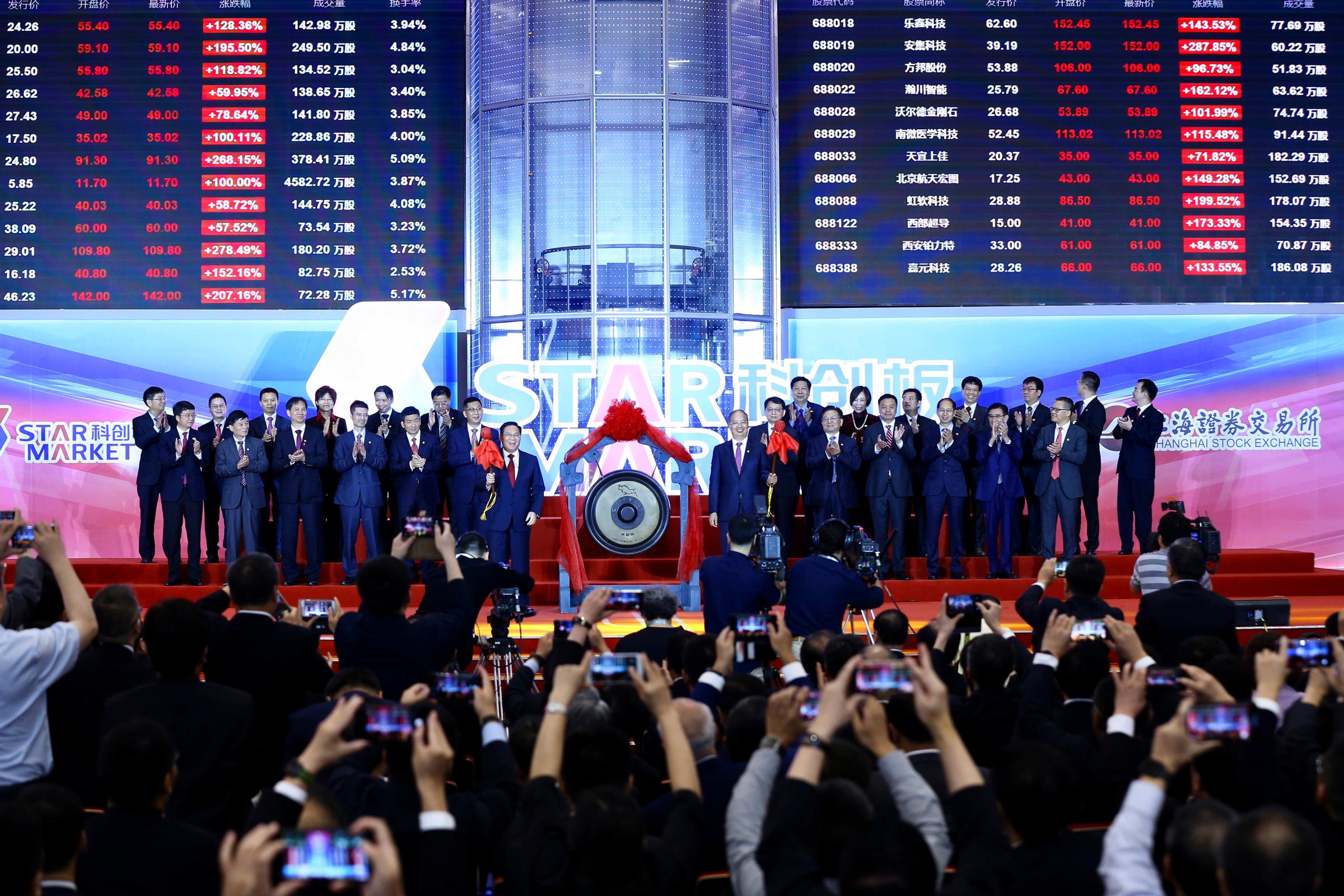
Executives from 25 tech companies gathered in Shanghai to celebrate the start of trading of China’s new stock board, which launched Monday morning.
After a day of trading, it’s clear they had reason to celebrate; the companies listed on Shanghai Stock Exchange’s Sci-Tech Innovation Board (dubbed the Star Market), ranging from chipmakers to biotech businesses, closed their first day of trading up 84 to 400% higher than their IPO prices, with an average gain of 140%, according to the Financial Times.
The shares of one company, Anji Microelectronics Technology (Shanghai) Co. Ltd., were up 415% by the midday trading break, according to Reuters.
The launch of the Nasdaq-style Star Market marks a milestone for China, home to some of the world’s largest tech firms, whose capital markets have been overlooked as companies have listed in New York or Hong Kong.
The Star Market differs from the country’s other main exchanges in several key ways. Listings on the new board will not have to meet the same three-year profitability criteria that companies listing on the main bourses in Shanghai and Shenzhen do, making it possible for not-yet-profitable startups to list.
They’ll also face less regulation when it comes to their initial listing prices, unlike the other exchanges, where the securities regulator has the final say on IPO pricing. Tech companies will also face less red tape during the IPO process, which requires only registration as opposed to government approval.
Despite the initial excitement, investors say Monday’s surge may not last in the long-term.
“Investors are bidding up the share price, part of the reason is that they are not rational, the other reason is that this market was proposed by the government,” Ronald Wan, Chief Executive of Hong Kong-based Partners Capital International, told TIME. “They’re betting that the government will do whatever to support those companies.”
But there are bigger plans afoot for the Star Market.
Chinese President Xi Jinping announced plans for the tech board last November, as a means to drive China’s economic development by domestic technological innovation instead of the large-scale infrastructure spending that has fueled China’s past economic growth. The new board debuts at a time when China’s GDP is growing at its slowest pace in nearly three decades, hit by a damaging trade war with the U.S.
“They want to balance the imbalance because all the capital in the market goes to large companies like state-owned companies,” Wan says. “They want to channel the liquidity to smaller tech companies.”

Beijing also hopes to lure its tech giants home from the likes of New York and Hong Kong, where they have historically listed. At the end of 2018, 156 Chinese companies (at least 11 of those are state-owned enterprises) were listed on major U.S. exchanges with a total market capitalization of $1.2 trillion and 1,146 mainland companies were listed in Hong Kong, with market capitalization of $2.6 trillion.
There is reason to believe that overseas capital may be at risk if the trade war between the U.S. and China intensifies. Last month, a U.S. Congressional committee introduced legislation that would subject Chinese companies listed in the U.S. to stricter financial reporting requirements, signaling that the trade war may evolve into a financial war. Beijing has challenged U.S. reporting requirements for its companies in the past, citing national security concerns, but if the bill becomes law, companies that don’t comply would be forced to de-list.
But experts say that the Star Market might provide the perfect back-up. “I think what they’re trying to do now is build the platform to try to attract companies to go back to the mainland, like Alibaba and Tencent,” Wan says.
More Must-Reads from TIME
- Donald Trump Is TIME's 2024 Person of the Year
- Why We Chose Trump as Person of the Year
- Is Intermittent Fasting Good or Bad for You?
- The 100 Must-Read Books of 2024
- The 20 Best Christmas TV Episodes
- Column: If Optimism Feels Ridiculous Now, Try Hope
- The Future of Climate Action Is Trade Policy
- Merle Bombardieri Is Helping People Make the Baby Decision
Write to AMY GUNIA / HONG KONG at amy.gunia@time.com